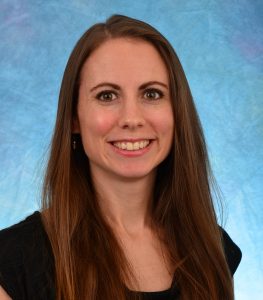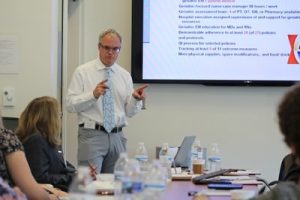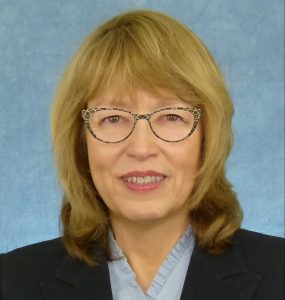Advanced age brings unique needs, particularly in the ED. Led by Christina Shenvi, MD, PhD, the Geriatric-Emergency Department Accreditation at UNC’s Hillsborough ED is one of about 20 to receive this designation nationwide.


October 15, 2018
CHAPEL HILL, NC — UNC Hospitals’ Hillsborough Campus is the first hospital in North Carolina to receive Geriatric- Emergency Department Accreditation (GEDA). Achieving a Level 2 “Silver” GED accreditation from the American College of Emergency Physicians (ACEP), certifies that staff have been specially trained to assess older patients in a more comprehensive way. Geriatric-friendly policies, processes, equipment, and facilities are aimed at improving the trajectory of care for vulnerable adults, identifying and intervening upon unmet medical and social support needs in a therapeutic setting. To date, UNC is one of about 20 hospitals accredited nationwide.
Kevin Biese, MD, MAT, associate professor of emergency medicine and geriatrics, and co-director of the geriatric emergency medicine service, chairs the national ACEP Accreditation process. He says the traditional model of acute care emergency medicine no longer works for older adults, especially when it results in unwanted or unneeded hospitalizations, and frequent readmissions.
“The traditional system in not aligned with the needs and care wishes of elderly patients, even though many wonderful physicians, nurses, and other care providers are dedicated to providing the best care that they can,” Biese said. “Aging adults more often present to the ED by ambulance. They often require more time and lab work, have more complicated medical and social needs, and they end up being admitted more often to the hospital.”
Leading UNC’s Accreditation
Christina Shenvi, MD, PhD, assistant professor of emergency medicine, led UNC’s accreditation, in collaboration with Jeff Strickler, president of UNC Hospital Hillsborough Campus, Susan O’Leary and Julie Reitz from nursing, and a team of pharmacists, case managers and many other staff, along with leadership from emergency medicine department chair Jane Brice, MD, MPH.
“In thinking about how to improve geriatric emergency care, we consider staff, systems, structures, and support,” Shenvi said. “We need adequate staffing who are trained in geriatric care. We need systems of care that will allow us to coordinate home services and follow-up care. We need structures, such as comfortable beds, and equipment such as walkers and canes available. Finally, we need support from the community as we make more connections with primary care physicians and home services. We also need better integration and teamwork. For older patients, it is even more important to involve pharmacists, physical therapy, and case management in ED patient care. It has been a privilege to work with a team dedicated to making this possible.”
Shenvi says visitors to UNC’s Hillsborough ED will be welcomed with respect and dignity, with awareness of their special needs. The accreditation involved the training of ER staff on the principles and practice of geriatric care. Older adults are assessed and screened for signs of delirium. Comprehensive medication reviews may be needed, as well as referrals to community resources. The discharge process for an older adult might involve strengthening relationships with community services and ensuring that the physical environment is safe and therapeutic, providing connections to community resources, for falls assessments, home health care, or home meal programs.”
UNC’s Geriatric Inpatient Medical Service and Center for Aging and Health
With more than 60 percent of national hospital admissions for patients over 65 coming through the emergency department, accreditation helps hospitals focus on factors leading to fewer hospitalizations and more successful outcomes after discharge. For the Hillsborough campus, the accreditation enhances an already geriatric-friendly inpatient medical service, designed especially for seniors requiring hospitalization.
UNC’s Center for Aging and Health, led by Jan Busby-Whitehead, MD, chief of the division of geriatric medicine, is working to advance patient-centered geriatric care and improve clinical outcomes for older adults. UNC recently launched a dementia-friendly hospital initiative that the Hillsborough campus will pilot before expanding to additional hospitals.
“The goal is to keep our seniors healthy, active and independent, for the highest quality of life possible,” Busby-Whitehead said. “But when their health becomes complex with increasing medical conditions and medications, our geriatric ED and developing dementia-friendly hospital will ensure that patients get the best geriatric care possible. This also includes training the next generation of physicians to sustain this care.”
ACEP Accreditation Program
ACEP launched the accreditation program in 2018 to improve and standardize emergency care for older patients. Biese was appointed to chair the national effort, to recognize hospitals that meet and exceed national geriatric care guidelines. The heightened focus on geriatric-specific emergency care comes at a time when research increasingly shows that everything about the ER experience is more challenging for elderly patients, who make up nearly 20 percent of emergency room visits. The aging population is also expected to double in the next 30 years.
If current trends continue, Shenvi says that by 2030, hospitals can expect every other ambulance coming to the ED to be carrying an older adult.
She added, “We need to be prepared, equipped, and ready to take care of these patients in an integrated, holistic manner.”
